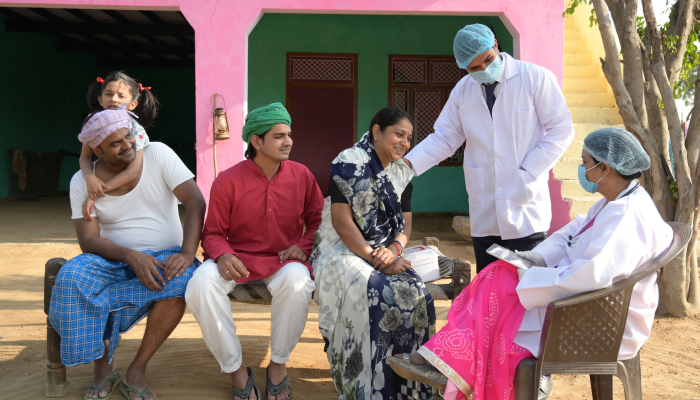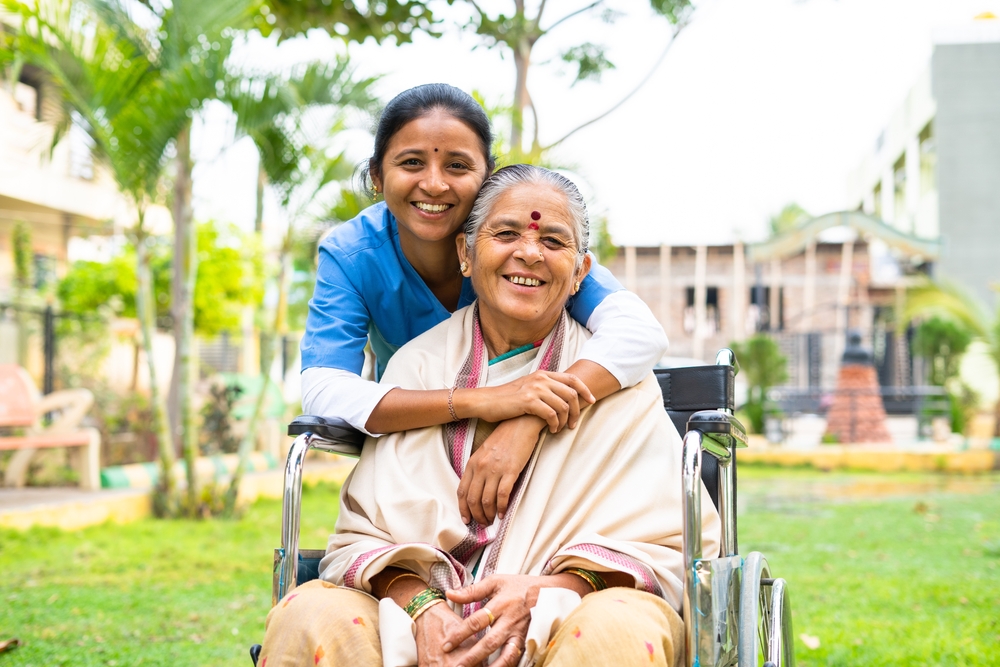Auxiliary Nurse Midwifery (ANM):
A Vital Part of the Healthcare System ANMs, or Auxiliary Nurse Midwives, play a critical role in providing healthcare services to communities, especially in rural and remote areas. Auxiliary Nurse Midwives are trained healthcare professionals who play a critical role in providing essential healthcare services to underserved populations, particularly in rural and remote areas. They receive education and training in various areas, including maternal and child health, family planning, and basic clinical procedures.
ANMs are responsible for providing preventive, promotional, and curative healthcare services, such as ante-natal and post-natal care, immunization, family planning, and conducting deliveries. They also educate and advise families on basic healthcare practices, monitor the growth and development of children, and refer patients to higher levels of care where necessary.
ANMs are the first point of contact for many individuals seeking healthcare services in these areas and help to improve maternal and child health outcomes, reduce maternal and infant mortality rates, and increase access to family planning services. Despite their importance, ANMs face several challenges in the delivery of healthcare services, including a shortage of qualified personnel, a lack of essential medicines and equipment, inadequate infrastructure, and limited support from the government and other healthcare stakeholders.
Education and Training:
To become an ANM in India, individuals must complete a two-year auxiliary nurse midwifery course that is offered by various nursing schools and institutions across the country. This course provides both theoretical and practical training in areas such as maternal and child health, family planning, and basic clinical procedures. The practical training includes hands-on experience in clinical settings, which helps ANMs to develop the skills and knowledge required to provide healthcare services to their communities. After completing the course, individuals must pass a qualifying examination to receive their ANM certification and begin practicing as qualified healthcare professionals. The education and training required to become an ANM are critical to ensuring that these healthcare professionals are equipped with the necessary skills and knowledge to provide essential healthcare services to underserved populations in rural and remote areas.
Responsibilities:
ANMs are responsible for providing a wide range of healthcare services to their communities, with a focus on preventive, promotional, and curative care. This includes providing ante-natal and post-natal care to pregnant women, monitoring the health of mothers and their infants, and ensuring that mothers receive the necessary care and support during and after delivery. ANMs also provide immunization services, which are essential for protecting children and adults from a range of infectious diseases. By providing these services, ANMs play a critical role in improving maternal and child health outcomes, reducing infant mortality rates, and increasing access to healthcare services in underserved communities.
In addition to providing direct healthcare services, ANMs also educate and advise families on basic healthcare practices, such as proper nutrition, hygiene, and sanitation. ANMs work closely with families to help them understand the importance of maintaining good health and preventing illness. They also monitor the growth and development of children, providing advice and support to parents on how to ensure that their children are healthy and thriving. By providing this education and support, ANMs empower families to take an active role in maintaining their own health and well-being.
Finally, ANMs play an important role in referring patients to higher levels of care when necessary. In some cases, patients may require specialized medical treatment that is not available at the local healthcare center. In these situations, ANMs work with other healthcare professionals to ensure that patients receive the care they need. By facilitating referrals and ensuring that patients receive appropriate care, ANMs help to ensure that all members of the community have access to high-quality healthcare services.
Importance:
ANMs are essential to the healthcare system, particularly in rural and remote areas where access to healthcare services is limited. As the first point of contact for many individuals seeking healthcare services, ANMs play a critical role in ensuring that basic healthcare needs are met. They provide essential maternal and child health services, including ante-natal and post-natal care, immunization, and family planning. By providing these services, ANMs contribute significantly to improving maternal and child health outcomes, reducing maternal and infant mortality rates, and increasing access to family planning services.
In addition to their roles in maternal and child health, ANMs also provide primary healthcare services to underserved populations. They educate and advise families on basic healthcare practices, monitor the growth and development of children, and refer patients to higher levels of care when necessary. ANMs also play a crucial role in ensuring the effective implementation of healthcare programs, especially in areas where there is a shortage of doctors and other healthcare professionals. Through their work, ANMs contribute to the overall health and well-being of communities and play a vital role in promoting health equity.
Challenges:
ANMs face several challenges in their work, one of the most significant being the shortage of qualified personnel. In many rural and remote areas, ANMs may be the only trained healthcare workers available, making it difficult to meet the healthcare needs of the population. This can result in long working hours, increased workload, and a lack of adequate rest, which can negatively affect their overall health and well-being.
Another major challenge that ANMs face is the lack of essential medicines and equipment. This can limit their ability to provide effective healthcare services and may result in delayed or inadequate treatment. In some cases, ANMs have to purchase essential medicines and supplies out of their own pockets, which can be a significant financial burden. The lack of adequate infrastructure, including basic amenities such as clean water and sanitation, also poses a challenge to ANMs, making it difficult to maintain hygiene and prevent the spread of infections.
Salaries:
The salary of an ANM in India can vary based on several factors such as experience, location, and the type of organization they work for. On average, ANMs can expect to earn anywhere between INR 10,000 to 30,000 per month. However, salaries may be higher in metropolitan cities or in private hospitals and lower in rural areas or government-run institutions. ANMs who have completed additional certifications or have several years of experience may earn higher salaries. Overall, the salary ranges of ANMs in India are influenced by a variety of factors and can vary significantly depending on the individual circumstances of each ANM.
Conclusion:
ANMs are crucial members of the healthcare workforce in India, especially in rural and remote areas. They provide essential maternal and child health services, family planning services, and primary healthcare services to underserved populations. Their services are particularly important in areas where there is a shortage of qualified healthcare professionals, and where there are significant barriers to accessing healthcare services.
Despite their importance, ANMs face several challenges in delivering healthcare services. A shortage of qualified personnel, inadequate infrastructure, and limited access to essential medicines and equipment are some of the significant challenges that ANMs face. Additionally, there is often limited support from the government and other healthcare stakeholders, which can make it difficult for ANMs to carry out their work effectively. Addressing these challenges is critical to ensuring that ANMs can provide quality healthcare services and improve health outcomes in underserved communities.
It is essential to provide ANMs with the necessary support and resources to carry out their work effectively. This includes ensuring that ANMs have access to ongoing training and professional development opportunities, as well as access to essential medicines and equipment. Providing ANMs with adequate support can also help to improve their working conditions and job satisfaction, which can in turn improve the quality of healthcare services that they provide. By investing in ANMs and addressing the challenges they face, we can help to ensure that all individuals, regardless of their location, have access to quality healthcare services.








